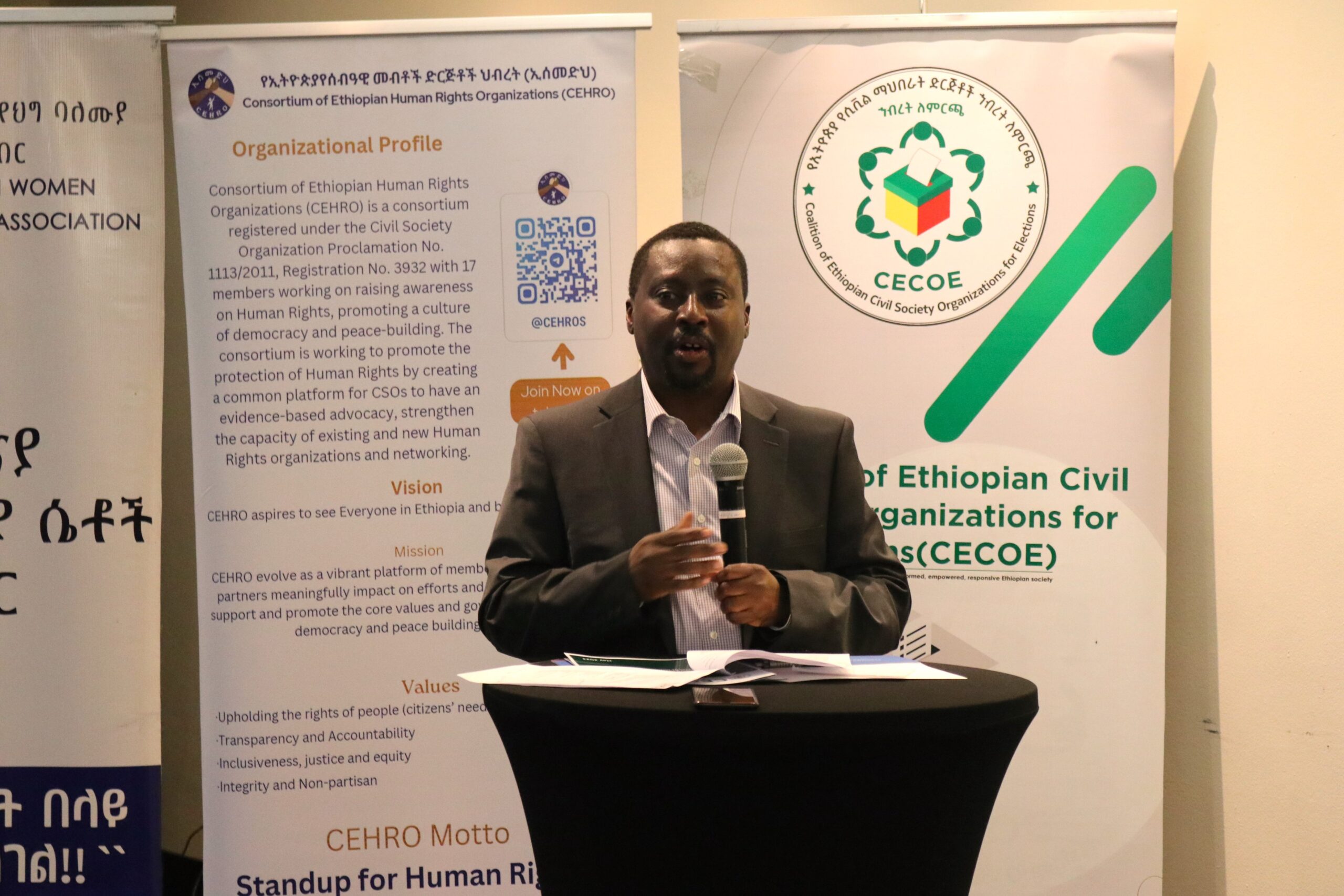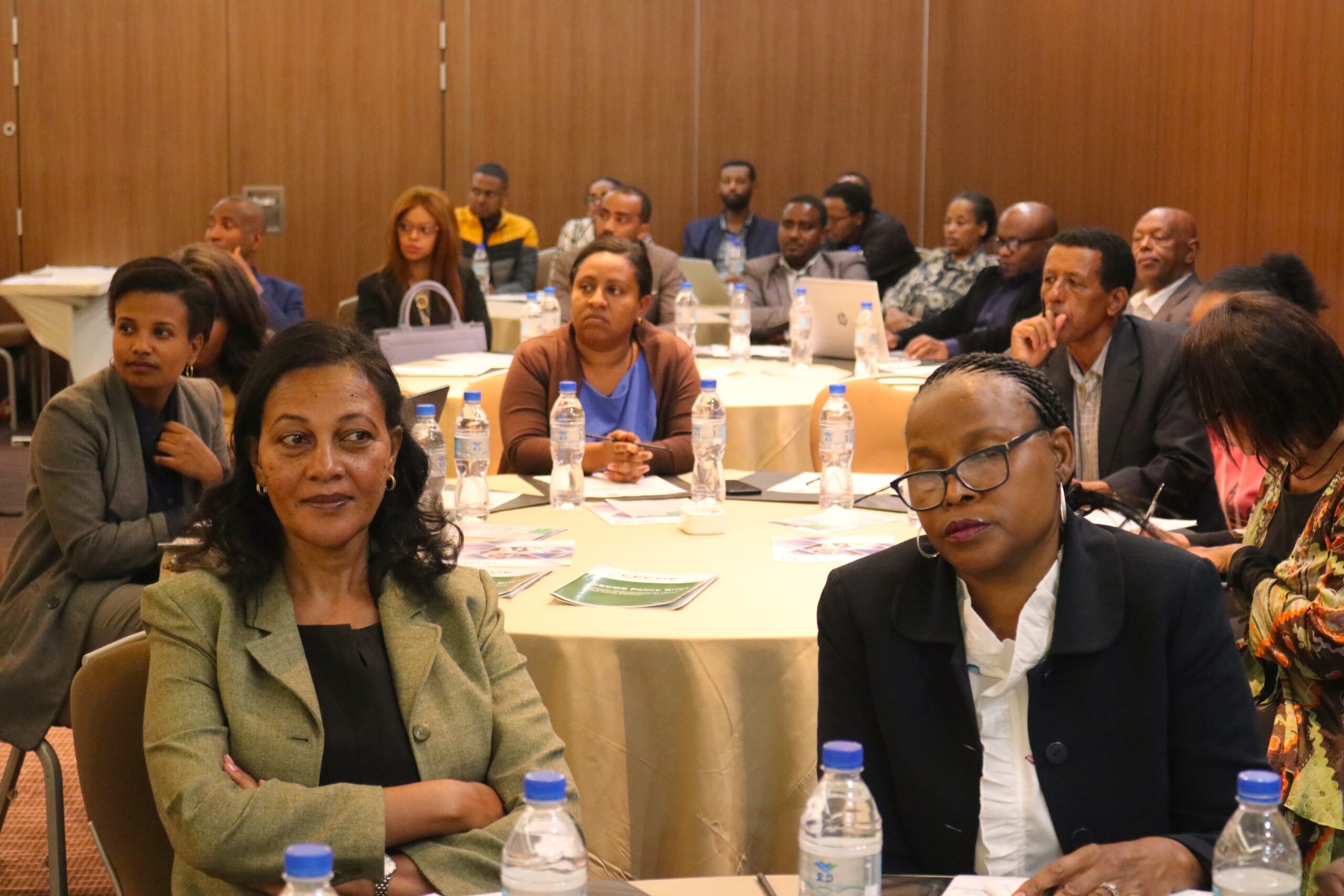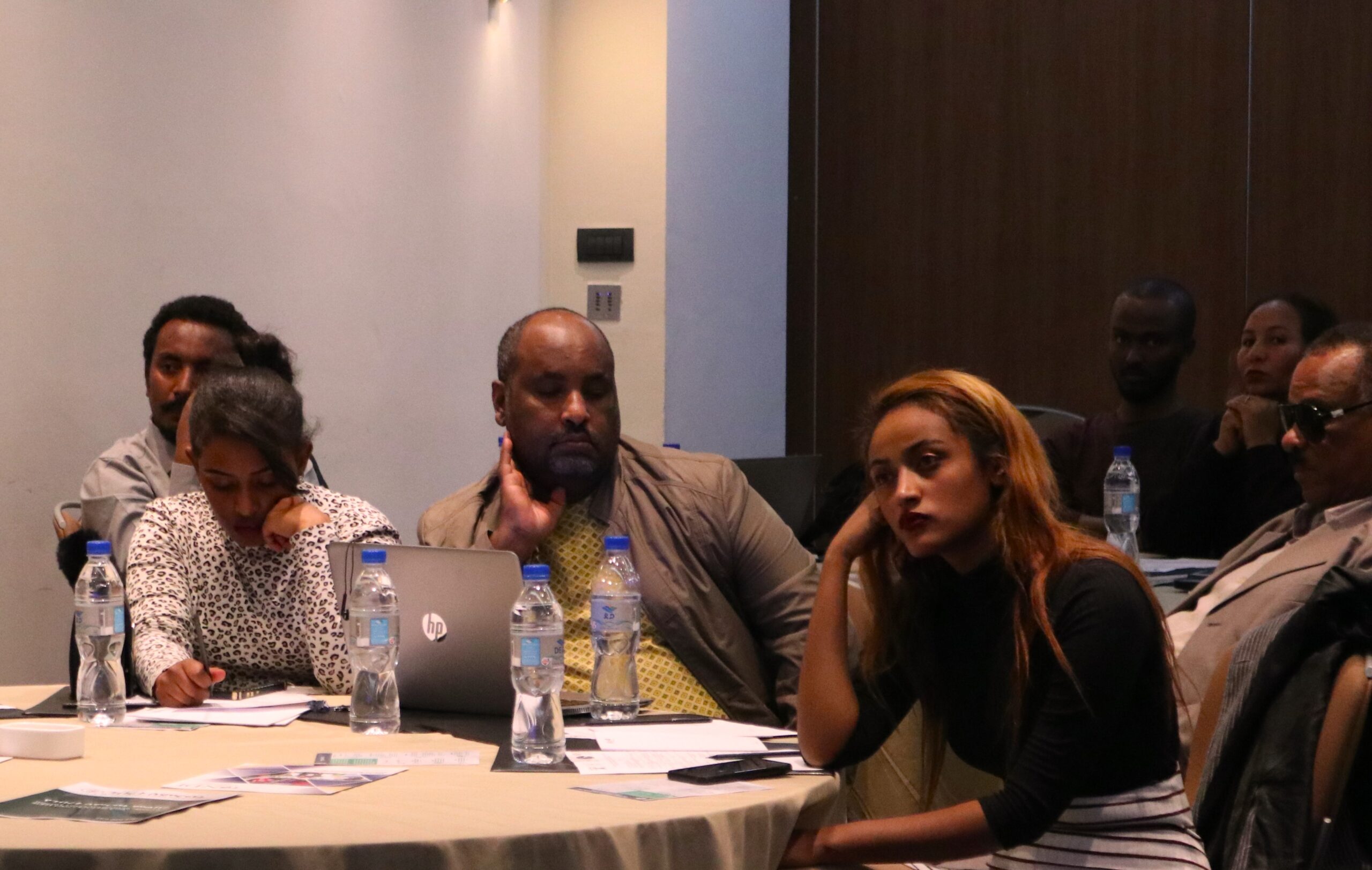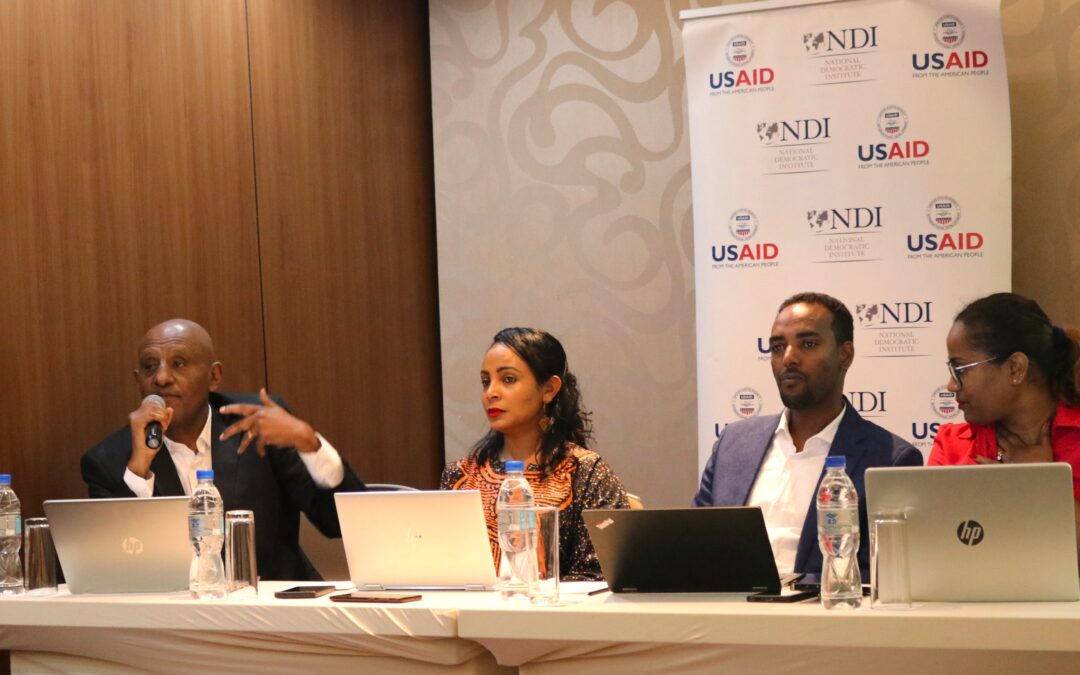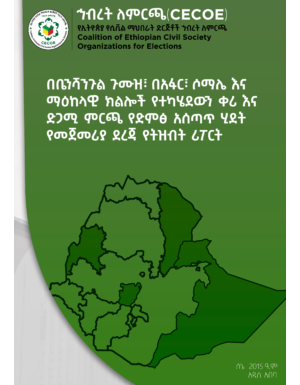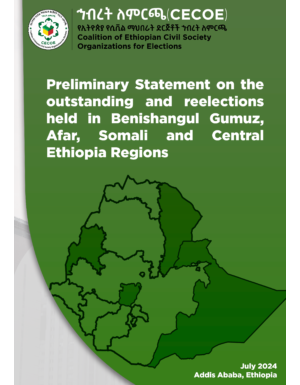A delegation of Ethiopian civil society leaders visited Nigeria from February 22 – February 28, 2022, to observe and familiarize themselves with how Nigerian election observation networks and groups organize to promote and facilitate citizen engagement and participation in elections.. The delegation consisted of representatives from the Coalition of Ethiopian Civil Society Organizations for Elections (CECOE), the Consortium of Ethiopia Human Rights Organizations (CEHRO), the Ethiopian Women Lawyers Association (EWLA), and the Federation of Ethiopian Association of Persons with Disabilities (FEAPD). The delegation met with the heads and experts of election observation groups, attend a Political Peace Accord, visited election situation rooms and public lectures in the Democracy, observed the voting process observed in some polling units in Abuja,
The delegation focused on several key issues that are relevant to Ethiopia’s upcoming election, such as:
- Introduce methods, programs, and activities that can be implemented in Ethiopia’s context
- Disability Inclusion in the electoral process
- Youth participation in the electoral process
- Gender Inclusion and violence against women in the electoral process
- The relationship between civil society, citizens, and electoral management bodies
- Electoral violence and the use of technology in election processes
The delegation shared their observations and insights in a webinar hosted by NDI on November 4, 2021. Here are some of the highlights from the speakers:
Abera Hailemariam Woldeyesus, Executive Director, CECOE – Delegation Leader
Ato Abera gave an overview of Nigeria’s political history and its journey to democracy. He noted that Nigeria has a strong civil society sector that played a vital role in ensuring a peaceful and credible election. He also highlighted some of the takeaways and challenges and innovations that Nigeria faced in its election, such as:
- The introduction of a new currency note caused logistical problems and cash shortages
- Biometric Voter Verification (BVA) has helped prevent some types of electoral fraud. However, it has been observed that the system is not a solution for all kinds of fraud, and there have been instances of BVA failure.
- Nigerian CSOs deployed a large number of observers in the elections, and Ethiopian CSOs should aim to increase the number and quality of observers in future elections.
- The use of an electronic transmission system called INEC Results Viewing allowed for real-time viewing of results, but also experienced delays and malfunctions
- The reliance on manual counting and collation in most polling stations due to system failures
Ato Abera concluded that technology can be both an enabler and a hindrance for elections and that it should be carefully planned and tested before implementation. He also stressed the importance of having a robust legal framework and a transparent dispute resolution mechanism for elections.
Mesud Gebeyehu Reta, Executive Director, CEHRO
Ato Mesud focused on the trust and cooperation between civil society and the electoral management body in Nigeria. He praised INEC for being responsive and inclusive towards civil society groups, and for providing them with access to information and accreditation. He also commended the civil society groups for being well-organized and coordinated in their observation and advocacy efforts. He noted that civil society groups used various platforms, such as social media, radio, television, and press conferences, to disseminate their findings and recommendations.
Ato Mesud recommended that the National Electoral Board of Ethiopia (NEBE) should work closely with civil society groups to enhance their capacity and credibility. He also urged donors to provide more than just technical support to civil society groups, but also financial and moral support.
Lensa Biyena Geleta, Executive Director, EWLA
Lensa spoke about the gender dimension of the election in Nigeria. She observed that women’s participation was low both as candidates and as voters. She attributed this to various factors, such as cultural norms, patriarchal attitudes, lack of resources, intimidation, violence, and discrimination. She also noted that Nigeria has a comprehensive database that captures demographic information, including gender-disaggregated data.
Lensa asked why women’s participation was so low despite the vibrant civil society sector in Nigeria. She suggested that more efforts should be made to empower women politically and economically, to create a conducive environment for their participation, and to address the root causes of gender inequality.
Semret Zenebe Gena, FEAPD
Semret shared her experience as a person with a disability observing the election in Nigeria. She said that she found many similarities between Ethiopia and Nigeria in terms of the challenges faced by persons with disabilities in the electoral process. She mentioned some of these challenges, such as:
- Lack of accessibility to polling stations and voting materials
- Lack of awareness and sensitivity among election officials and security personnel
- Lack of representation and inclusion in decision-making bodies
- Lack of disaggregated data on persons with disabilities
Semret also noted that Nigeria has a government institution dedicated to addressing the needs and rights of persons with disabilities. She said that this institution was helpful in facilitating their observation mission and providing them with information.
Semret recommended that Ethiopia should establish a similar institution to promote disability inclusion in all aspects of life, including elections. She also urged NEBE to consult with persons with disabilities and their organizations to ensure their meaningful participation in the electoral process.
